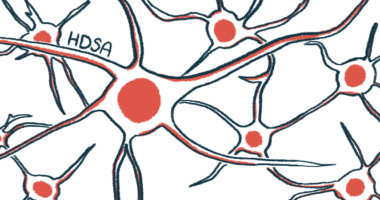Results of Probiodrug AG Mouse Study to be Presented at HD Therapeutics Conference

Probiodrug AG recently announced the results of a preclinical study investigating the role of glutaminyl cyclases (QCs) in Huntington’s disease. The results will be presented at the 12th Annual HD Therapeutics Conference of the CHDI Foundation, in Malta, April 24-27.
Probiodrug AG is a biopharmaceutical company developing innovative therapeutic options for neurodegenerative diseases, including Alzheimer’s and Huntington’s disease.
The clinical study investigated the effects of PQ912, an inhibitor of QCs, in an established mouse model for human Huntington’s disease. Mice received PQ912 at six weeks old (the age that parallels the first signs of the disease in humans) and were treated for 18 weeks.
At the end of the treatment, researchers observed a significant reduction (about 30%) of the levels of the mutatant huntingtin protein (mHTT), in the mice brains. This reduction was accompanied by lower levels of other disease markers, including the inflammation/gliosis marker called the GFAP-protein, at 24 weeks of age. Overall, the PQ912 treatment held a positive effect in normalizing the mice’s body weight gain and energy metabolism.
The molecular mechanism underlying these effects, researchers noted, may mimic that already described for beta-amyloid toxicity in models of Alzheimer’s disease. This means that QC activity may trigger the formation of mutated huntingtin protein and fuel, as in Alzheimer’s, neuro-inflammation and gliosis (i.e., alterations to glial cells in response to damage to the central nervous system).
“Considering the complex pathology behind neurodegenerative disorders, this novel therapeutic approach will likely intensify further research on QC-mediated effects also in other disease entities, including but not limited to HD. Maybe even more important, our results are very exciting as they clearly indicate an attractive approach for lowering toxic mutant HTT levels including several downstream pathological effects in this devastating disease. Considering that PQ912 is already in clinical studies in AD, the way for interventional studies in human HD gene carriers and patients may be not that long anymore,” said Inge Lues, PhD, chief development officer of Probiodrug, in a press release.
Stephan von Hörsten, a scientist who also participated in the study, added: “These data are exciting because they indicate that specific pharmacotherapy of HD conditions may well be capable in lowering mHTT levels, and thus, this QC inhibitor based intervention acts very close at the disease-inducing agent.”






